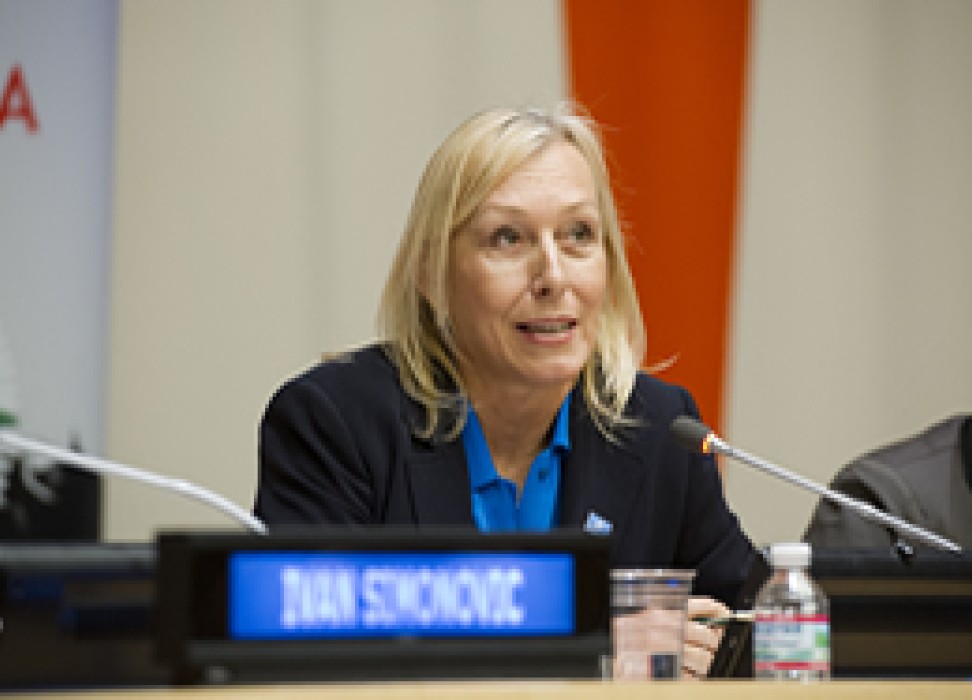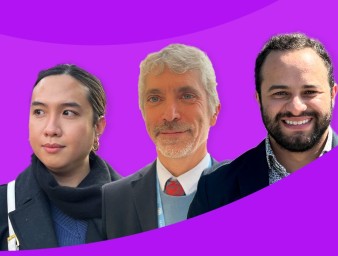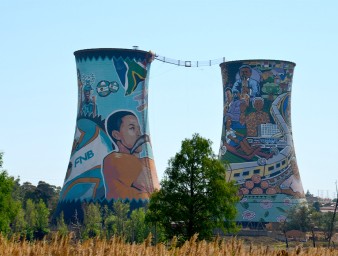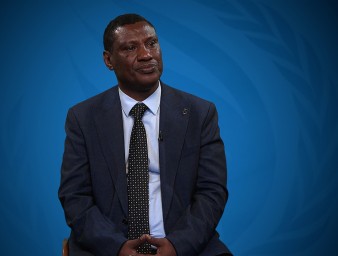Sports stars come out against homophobia
06 January 2014

“Professional athletes are heroes to their fans and when they speak out against prejudice they are heroes to the United Nations,” UN Secretary General, Ban-Ki Moon told participants at a recent meeting on the role of sports in the fight against homophobia at the UN Headquarters in New York.
Other speakers at the event included celebrity gay and lesbian athletes, and activists for the rights of lesbian, gay, bisexual, transgender (LGBT) and intersex people.
Tennis star Martina Navratilova recalled that back in 1981, when she had applied for U.S. citizenship, she could not even speak about being a lesbian because at the time it was considered a “disqualifier” for citizenship.
Navratilova fast-forwarded to this year, saying that “when Jason Collins (NBA basketball player) came out, he even got a phone call from President Obama congratulating him!”
“The overwhelming support I received after coming out has been humbling,” Collins added.
South African Human Rights activist, Thandeka Mkhuma, shared her story at the event, saying that after she was raped for being a lesbian, football became an outlet to overcome her fears and her teammates became her family. She added that it is the State’s responsibility to protect all citizens against all forms of violence, motivated by gender, race and sexual orientation.
The challenges facing intersex individuals – an issue that has received relatively little attention to date at the UN – was highlighted by intersex activist Hida Viloria, who spoke about the stigma and hostility directed at those whose bodies do not neatly fit into male or female sex categories.
In an attempt to fix their sex, many intersex babies are subjected to damaging genital surgery without their or their parents’ informed consent, often with profound and negative physical and psychological implications for those affected.
Both the challenges facing LGBT people and the very real strides made in recent years to protect LGBT rights were highlighted in an inspiring, new animated video, which received its first public screening at the event.
The video, “The History of LGBT rights at the UN”, was produced by the OHCHR Free & Equal campaign, and uses symbols and maps to illustrate the scale and spread of legal changes affecting LGBT people in all regions. Since 1990, for example, almost 40 countries have legalised same sex relationships, while many more have lawfully banned discrimination against LGBT people.
The video also shows the growth in support for action to protect LGBT rights among UN Member States, which has led in the past three years to the first adopted UN resolution on the issue, the first official UN report, and the first formal inter-governmental debate in the UN Human Rights Council.
The video notes that like the struggles for racial and gender equality, the struggle for LGBT equality will only be won if changes in laws and policies are matched by changes in people’s hearts and minds, which is something that everyone who supports the cause can help bring about.
The event, which was held on Human Rights Day, was organized by the UN Human Rights Office and other members of the LGBT Core Group at the United Nations, including the permanent missions of Argentina, Brazil, Croatia, El Salvador, the European Union, France, Israel, Japan, the Netherlands, New Zealand, Norway and the United States, and the NGOs Human Rights Watch, the International Gay and Lesbian Human Rights Commission.
Additional support was provided by Global Action Initiatives, and United for Equality in Sport & Entertainment.
6 January 2014



